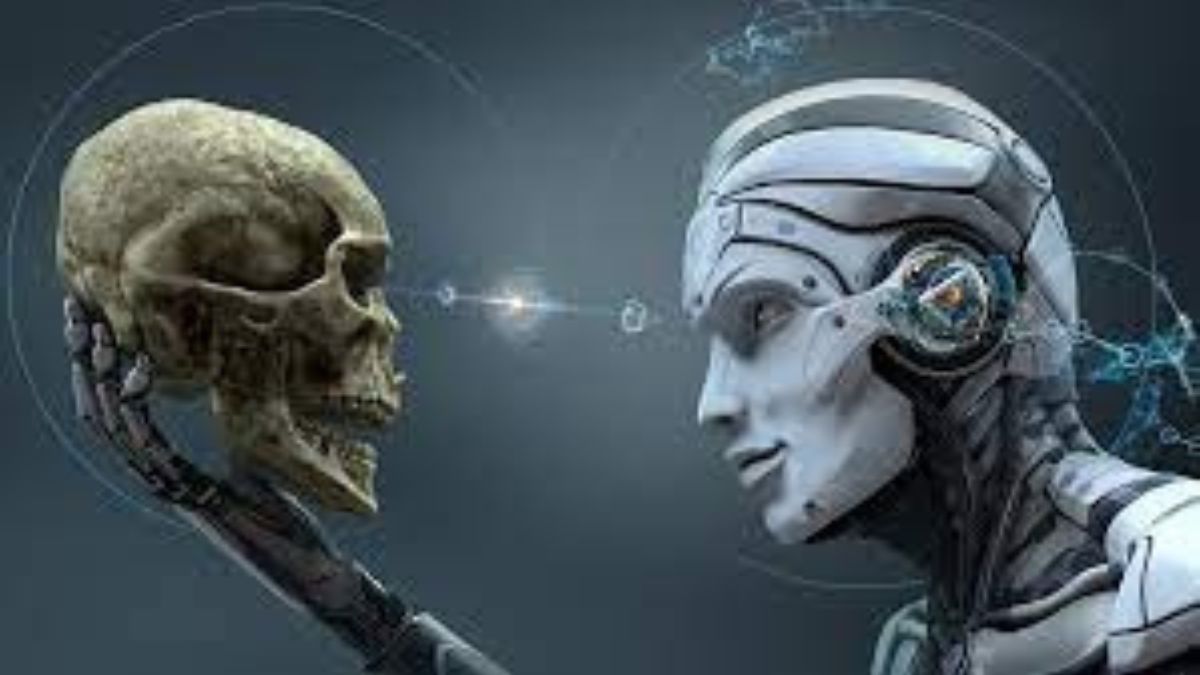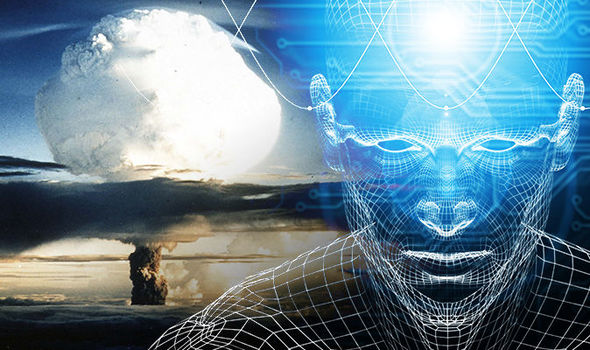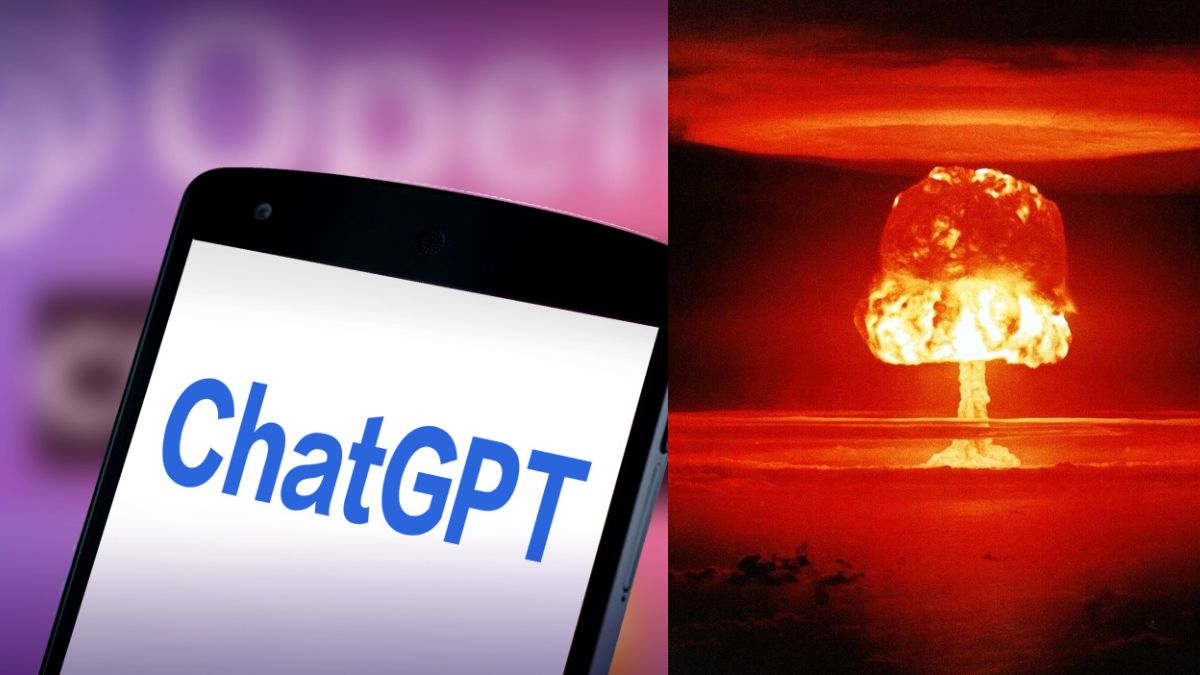In the ever-changing world of technology and retai...
36% of researchers believe that AI could trigger a "nuclear-level catastrophe."
April 14, 2023 By Awanish Kumar

(Image Credit Google)
"A three-letter acronym doesn't capture the enormity of what AGI would represent, so I will refer to it as what is: God-like AI," Ian Hogarth wrote in the FT. Hogarth used that term, he said, because such technology could develop by itself and transform the world without supervision.
"God-like AI could be a force beyond our control or understanding, and one that could usher in the obsolescence or destruction of the human race," he added.
[caption id="attachment_151665" align="aligncenter" width="590"] Image credit : Daily Express[/caption]
"Until now, humans have remained a necessary part of the learning process that characterizes progress in AI. At some point, someone will figure out how to cut us out of the loop, creating a God-like AI capable of infinite self-improvement," Hogarth added. "By then, it may be too late."
Before cofounding Songkick, a concert discovery website that was eventually purchased by Warner Music Group, Hogarth studied engineering at Cambridge University, including artificial intelligence.He has now made investments in over 50 machine-learning-based firms, including Anthropic, which was formed by former OpenAI personnel, according to his own website. He publishes a report yearly titled "The State of AI."
In a recent earnings call, Jensen Huang, CEO of Nvidia, the chip manufacturer whose GPUs are frequently used to power AI, stated that over the past ten years, AI has become one million times more powerful. According to PC Gamer, Huang anticipates that OpenAI's ChatGPT will make a similar leap in the coming ten years.
Also read : Robot throws tape measures like how Spider-Man uses webs
According to how much they can compute per second, Hogarth stated in his FT essay that the largest AIs had 100 million times greater processing power over the same time period.
He also cautioned that a lack of regulation might result in an unstable "God-like AI" as a result of the intense competition between those at the vanguard of the technology, such as OpenAI and Alphabet-owned DeepMind.
"They are running towards a finish line without an understanding of what lies on the other side," he wrote.
Image credit : Daily Express[/caption]
"Until now, humans have remained a necessary part of the learning process that characterizes progress in AI. At some point, someone will figure out how to cut us out of the loop, creating a God-like AI capable of infinite self-improvement," Hogarth added. "By then, it may be too late."
Before cofounding Songkick, a concert discovery website that was eventually purchased by Warner Music Group, Hogarth studied engineering at Cambridge University, including artificial intelligence.He has now made investments in over 50 machine-learning-based firms, including Anthropic, which was formed by former OpenAI personnel, according to his own website. He publishes a report yearly titled "The State of AI."
In a recent earnings call, Jensen Huang, CEO of Nvidia, the chip manufacturer whose GPUs are frequently used to power AI, stated that over the past ten years, AI has become one million times more powerful. According to PC Gamer, Huang anticipates that OpenAI's ChatGPT will make a similar leap in the coming ten years.
Also read : Robot throws tape measures like how Spider-Man uses webs
According to how much they can compute per second, Hogarth stated in his FT essay that the largest AIs had 100 million times greater processing power over the same time period.
He also cautioned that a lack of regulation might result in an unstable "God-like AI" as a result of the intense competition between those at the vanguard of the technology, such as OpenAI and Alphabet-owned DeepMind.
"They are running towards a finish line without an understanding of what lies on the other side," he wrote. In a 2019 interview with the New York Times, OpenAI CEO Sam Altman compared his ambitions to the Manhattan Project, which developed the first nuclear weapons. He reiterated its mastermind, Robert Oppenheimer, saying: "Technology happens because it is possible," and pointed out that the pair share the same birthday.
AGI will have a significant influence, but according to Hogarth, whether that impact is beneficial or devastating will depend on how quickly development is made and how long regulation takes.
In a 2019 interview with the New York Times, OpenAI CEO Sam Altman compared his ambitions to the Manhattan Project, which developed the first nuclear weapons. He reiterated its mastermind, Robert Oppenheimer, saying: "Technology happens because it is possible," and pointed out that the pair share the same birthday.
AGI will have a significant influence, but according to Hogarth, whether that impact is beneficial or devastating will depend on how quickly development is made and how long regulation takes.
Leave a Reply

Apple's iOS 18: A Leap into the AI Era
March 12, 2024

Google's Regular Pixel 8 Won't Get Gemini Nano AI
March 12, 2024

MacBook Air M3 Makes Amends for M2's Storage Blunder
March 11, 2024

Samsung Unveils the Galaxy M15 5G
March 11, 2024

Elon Musk's xAI to Open-Source Chatbot Grok
March 11, 2024

Contra: Operation Galuga - A Modern Run-and-Gun Classic
March 11, 2024

Musk Confirms X's TV App Arrives This Week
March 11, 2024
RELATED NEWS
2
3
4
5
6
7
8
9
10




